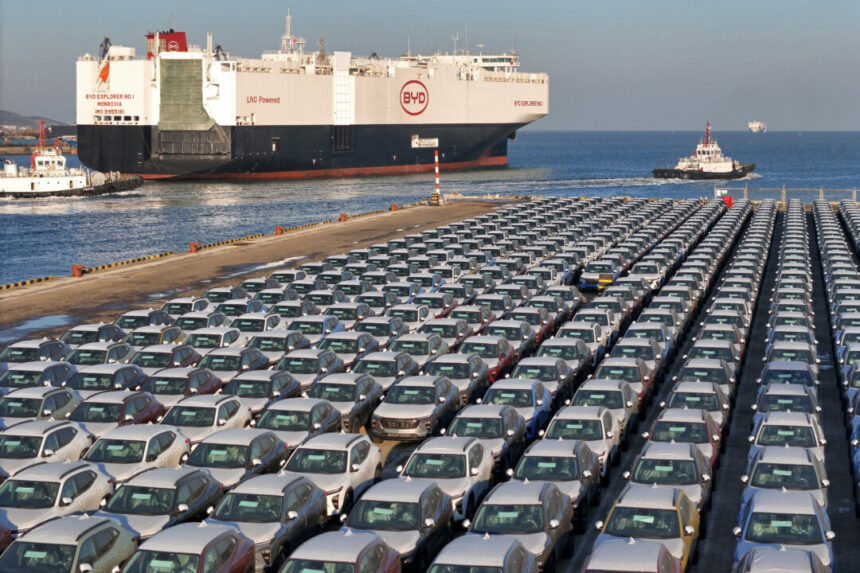During her recent visit to China, Janet Yellen emphasized the urgent need for Chinese authorities to address their overcapacity issues to prevent negative global impacts. China’s focus on exporting low-cost goods due to weak domestic demand has led to a massive surplus of capacity, causing economic distortions worldwide and drawing criticism from various countries, including the United States. Yellen, the U.S. Treasury Secretary, spent four days in China advocating for action on overcapacity, particularly in clean energy sectors like electric vehicles, solar panels, and lithium-ion batteries. Despite her efforts, Yellen acknowledged the unlikelihood of immediate policy changes from Chinese officials, underscoring the ongoing tension in U.S.-China economic relations over trade imbalances and market disruptions.
A recent report highlighted China’s significant presence in the global market for electric vehicles and solar panels, with the country rapidly expanding its exports. This surge in overcapacity has been labeled “China Shock 2.0,” reminiscent of the impact China’s entry into the World Trade Organization had on the U.S. economy in the early 2000s. The CCP’s approach to economic policy, focusing on absolute advantage rather than comparative advantage, has led to substantial subsidies and dominance in industries like steel and solar panels, contributing to global trade imbalances and challenges for other countries’ industries. Solar companies acquired advanced technology and brought it back to China, replicating the same strategy in other industries such as semiconductors and batteries. The CCP’s National Integrated Circuit Strategic Plan offers substantial government subsidies to create a self-sufficient semiconductor industry in China, with Huawei alone receiving significant subsidies for wafer production. This party-state capitalism model poses a threat to the US, as it focuses on regime survival while expanding party branches in private and foreign firms. The CCP’s mechanisms aim to benefit domestic firms in strategic sectors, creating a strong global force known as ‘CCP Inc.’ with unparalleled capabilities in overseas investment deals. The interconnected ecosystem of Chinese firms, state-owned banks, and investors poses challenges to US economic and strategic interests. Please rewrite this sentence.
Source link





